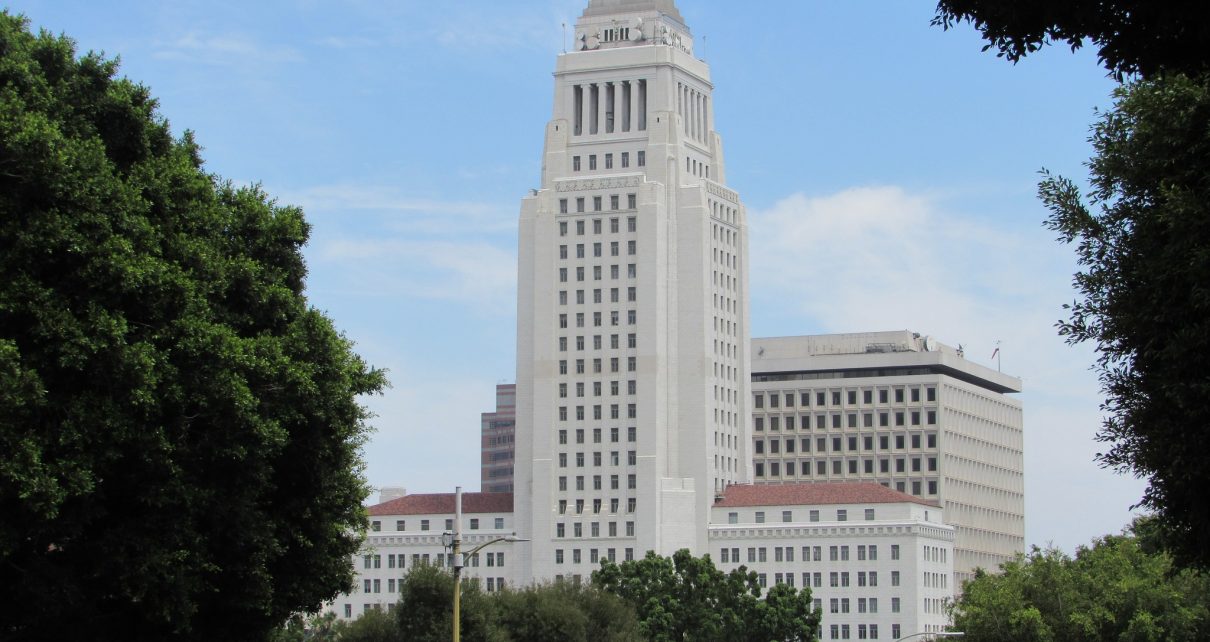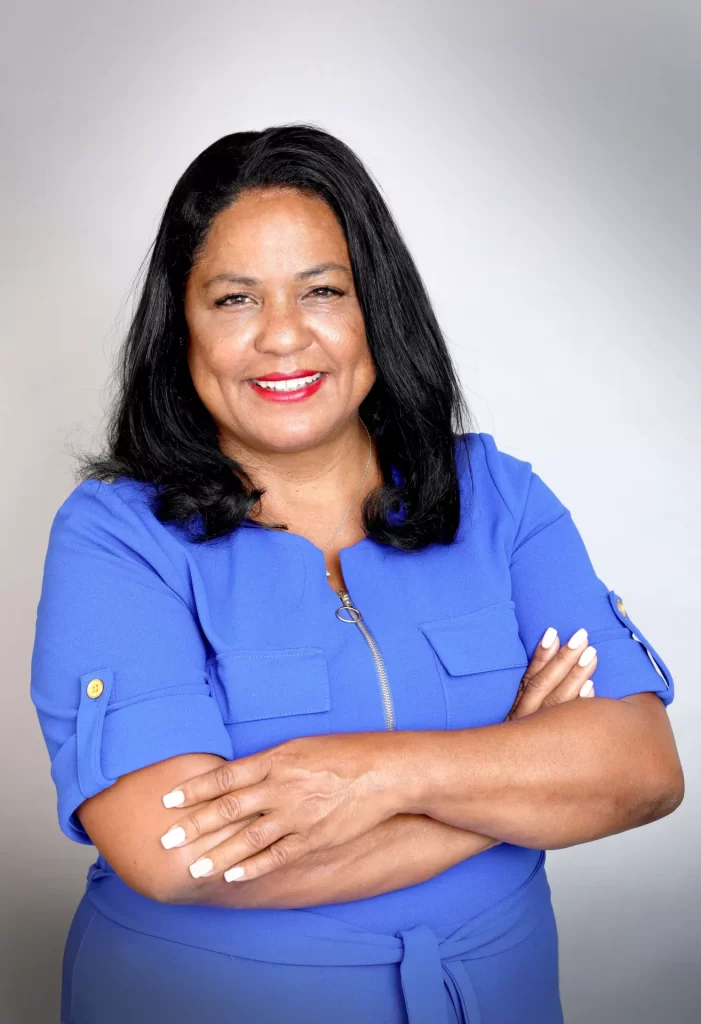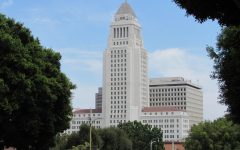
Los Angeles City Hall (Photo: Evan Symon for the California Globe)
Support For, Opposition Against Los Angeles’ Proposed Cashless Store Ban Grows
Three City Council members try to make push for motion ahead of City Council committee vote
By Evan Symon, April 30, 2024 7:34 pm
Three Los Angeles City Council members backed a motion on Tuesday that would ban cashless businesses in Los Angeles, arguing that many residents don’t have bank accounts and that digital transactions could be easily traced by people after those who prefer cash.

Since the 2010’s, cashless stores have been on the rise in the United States, with a large bump seen during and after the COVID-19 pandemic to reduce the spread of the virus. While cashless stores had many positives, including ease of purchase and robberies dramatically going down, some negatives were also realized. In particular, opponents said that cashless businesses were not inclusive, leaving out those who preferred to use cash, those without bank accounts, the elderly, low-income people, the homeless, and illegal immigrants.
Opponents have also noted that victims of sexual assaults and other crimes attempting to get away from those who wish to harm them can be tracked by digital transactions, whereas cash is traceless.
While statistics have shown that more and more people are no longer using cash for transactions, instead using credit card, debit cards, apps, and other digital and wireless means to pay for purchases, concerns over the underbanked population, as well as those who rely mainly on cash for transactions, have led to more cities and states to ban cashless businesses. Since the late 2010’s, Colorado, Rhode Island, Massachusetts and New Jersey have instituted statewide bans, while Philadelphia, New York City, and Washington D.C. have passed city bans. In 2019, San Francisco became the first city in California to pass such a ban, with Berkeley joining them soon afterwards.
Last year, Los Angeles became the most recent big city to consider the ban. First introduced in August 2023 by Councilwoman Heather Hutt, the motion specifically pointed out that many are unable to get bank accounts or not being allowed to get credit access, with cash the only way they can pay for many goods and services. Specifically, Hutt stressed that “not accepting cash payments in the marketplace systematically excludes low-income communities of color, young people who do not meet the age qualifications for credit or debit cards, and seniors who have not transitioned to card or digital payment modes.” The motion also specifically pointed out a 2017 Federal Deposit Insurance Corporation (FDIC) report that found that 17% of African-American households and 14% of Latino households in the United States had no bank account.
In October 2023, the motion moved forward, with the Los Angeles City Council voted 13-0 on Tuesday to approve the cashless store ban motion, with the chief legislative analyst being instructed to work with the city attorney on the proposed policy. The motion and final vote have lingered since then, as the city attorney has been working on the policy. However, with the policy expected soon, City Councilmembers Hutt, Hugo Soto-Martinez and Eunisses Hernandez all came out in support of the upcoming motion Tuesday, hoping for it to be passed next in the LA City Council Trade, Travel and Tourism committee sometime this summer.
Cashless Store ban motion
“These are everyday people,” said Alberto Retana, president of the Community Coalition, during the speeches on Tuesday. “The Black and brown faces, the white and Asian faces, these are all the faces of Los Angeles who carry cash and want to participate in our city’s economy. Going cashless is a form of economic suppression, and a form of othering that tells Angelenos they do not belong.”
Leslie Belt, a representative of the Jenesse Center, a domestic violence non-profit, added, “When survivors are forced to rely on digital transactions, they leave digital footprints and become easily traceable by abusers who often control their bank accounts.”
Hutt echoed those thoughts, saying, “Especially as we end April, which is Sexual Assault Awareness Month, this is about our victims of domestic violence who need to use cash for their safety and escape. Electronic forms of payment can track them when trying to flee.”
However, many store owners and customers remain opposed to the ban, as cashless businesses have seen robberies decrease dramatically, with critics saying that the ban would only help contribute to a rise in crime, as it did in San Francisco in 2019.
“This is idiotic,” Jay Branchley, a co-owner of several stores in the L.A. area told the Globe. “During the pandemic in 2020, we decided to go cashless. They said that cash helped spread it, so we ended it then and there. And almost overnight, crime dropped immediately. It was as if we went off criminals radars for stick ups. We still dealt with things like product loss, but with a little added security, we saw profits rise as customers began feeling safe again.”
“We did have some complaints about not accepting cash, but they were few. The biggest complaint wasn’t crime any more, but non-customer restroom usage. It felt like we were in Pasadena or Glendale or some other suburb all the sudden. But now, the LA City Council wants this taken away. A few people felt bad for not having a credit or debit card, and now we have to face that crime will rise again. This is awful.”
The updated motion is next expected to be heard in a City Council committee in the coming months.




More unemployment and terminations coming soon, courtesy of government’s interference with the free market.
“The Office of Wage Standards (OWS) would like to announce that effective on July 1st of this year, the City of Los Angeles minimum wage rate (MWR) will increase to $17.28/hour. Under the Ctiy’s Minimum Wage Ordinance, Employees working in the City are also entitled to 48 hours of paid sick leave every 12-month period: front-loaded (provided all at once) or accrued at the rate of 1 hour per every 30 hours worked. The 2024 wage increase was calculated based on the Consumer Price Index (CPI) for Urban Wage Earners and Clerical Workers (CPI-W) for the Los Angeles metropolitan area published by the Bureau of Labor Statistics. In January of each year, the OWS will calculate the annual wage increase based on the average of the monthly CPI data for the prior calendar year. The adjusted rate will be announced on February 1st and posted on our website.